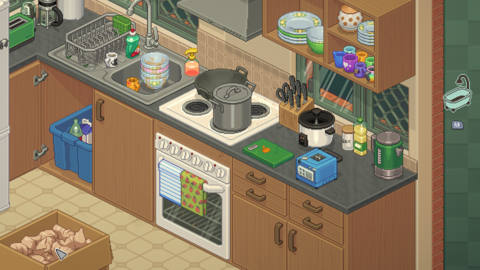
Games like to take us places, whether it’s space, hidden jungles or a bygone version of England. As much as I love these alternate realities of the real thing and the joys of video game tourism, increasingly they’ve made me think about the home, the place in the physical world where most, if not all, our gaming actually takes place.
The home, or even just home in the wider sense, seems in many ways antithetical to the stories many games tell. Going on a journey means leaving home – RPGs in particular like to deal in permanent displacement. Baldur’s Gate 3 begins after your player character has been abducted by mind flayers, Divinity: Original Sin 2 similarly starts with your imprisonment and escape. JRPG classic Secret of Mana compels you to travel because you’ve been exiled from your village, and in Dragon Quest 11, the protagonist’s home is destroyed completely. This year, I loved Eastward’s mild subversion of this classic idea of displacement – here, the whole quest was about finding a home. The game takes its time to introduce us to its different towns and sprawling cities, because it wants to make sure that we see protagonists John and Sam build a life there with all that entails – helping out in the community, making new friends, even sitting down at the end of an eventful day and having a meal together. However, many players later told me that these lengthy segments felt slow to them – pulling them away from the adventure gameplay that only happens when a calamity repeatedly displaces John and Sam.
